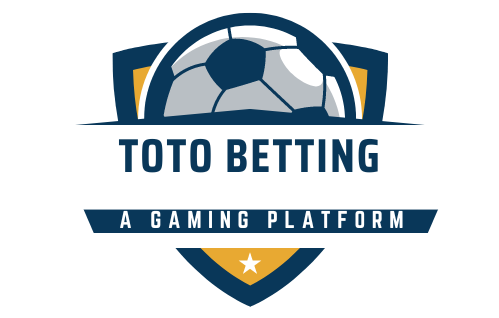
The online gambling industry has experienced unprecedented growth in recent years, driven by advances in technology and shifting consumer preferences. However, with this growth comes a myriad of legal challenges and restrictions that betting site operators must navigate to ensure compliance and sustainability. In this comprehensive guide, we will delve into the intricacies of legal restrictions on betting site features, exploring the complexities of jurisdictional regulations, compliance with anti-money laundering laws, responsible gambling initiatives, advertising and marketing restrictions, data protection and privacy compliance, payment processing challenges, intellectual property rights, regulatory compliance monitoring and reporting, the challenges of operating in multiple jurisdictions, and the importance of collaboration with regulatory authorities and industry stakeholders.
Understanding Jurisdictional Regulations:
One of the fundamental challenges for betting site operators is navigating the complex web of jurisdictional regulations. Laws governing online gambling vary significantly from one region to another, with each jurisdiction imposing its own set of rules and requirements. Operators must ensure compliance with the laws of the jurisdictions in which they operate, which may include obtaining licenses from regulatory authorities and adhering to specific operational requirements. Failure to comply with jurisdictional regulations can result in severe penalties, including fines, license revocation, and even criminal prosecution.
Compliance with Anti-Money Laundering Laws:
Money laundering poses a significant risk to the integrity of the online gambling industry, making compliance with anti-money laundering (AML) laws a top priority for betting site operators. AML regulations require operators to implement robust measures to detect and prevent money laundering activities, including customer due diligence, transaction monitoring, and reporting of suspicious activity to the appropriate authorities. Failure to comply with AML laws can result in severe consequences, including regulatory sanctions and reputational damage.
Responsible Gambling Initiatives:
In recent years, there has been a growing emphasis on responsible gambling initiatives aimed at protecting vulnerable players and minimizing gambling-related harm. Betting site operators are required to implement a range of measures to promote responsible gambling behavior, including age verification, self-exclusion programs, and the provision of information and support services for problem gamblers. By prioritizing responsible gambling initiatives, operators can demonstrate their commitment to ethical business practices and safeguard the well-being of their customers.
Advertising and Marketing Restrictions:
Many jurisdictions impose strict regulations on the advertising and marketing of gambling services, aiming to protect consumers from misleading or harmful advertising practices. Betting site operators must ensure that their promotional activities comply with applicable laws and regulations, including restrictions on advertising to minors, the use of misleading or deceptive advertising content, and the placement of advertisements in certain media channels. Compliance with advertising and marketing restrictions requires careful planning and oversight to avoid regulatory scrutiny and potential penalties.
Data Protection and Privacy Compliance:
With the increasing emphasis on data protection and privacy, betting site operators must ensure that they handle customer data in accordance with applicable laws and regulations. This includes implementing robust data security measures, obtaining appropriate consent for data processing activities, and complying with requirements such as the General Data Protection Regulation (GDPR) in the European Union. Failure to comply with data protection and privacy laws can result in significant fines and reputational damage, highlighting the importance of prioritizing data security and privacy compliance.
Payment Processing Challenges:
Payment processing is a critical aspect of online gambling operations, presenting unique challenges and legal considerations for betting site operators. Many jurisdictions have strict regulations governing the processing of gambling-related transactions, including restrictions on certain payment methods and requirements for obtaining licenses or approvals from financial regulatory authorities. Operators must navigate these regulatory hurdles carefully to ensure smooth and compliant payment processing operations, working closely with financial partners and regulatory authorities to address any compliance issues that may arise.
Intellectual Property Rights:
Betting site operators must also navigate intellectual property rights issues, including trademarks, copyrights, and patents. The use of third-party intellectual property without proper authorization can result in legal action and significant financial liabilities, making it essential for operators to conduct thorough intellectual property clearance checks and obtain appropriate licenses or permissions where necessary. By respecting intellectual property rights and avoiding infringement, operators can protect their businesses from costly legal disputes and reputational damage.
Regulatory Compliance Monitoring and Reporting:
Compliance with legal restrictions on betting site features requires ongoing monitoring and reporting of regulatory developments. Operators must stay informed about changes to laws and regulations that may impact their operations, ensuring that their policies and procedures remain up-to-date and aligned with current regulatory requirements. This may involve establishing internal compliance teams, engaging external legal counsel, and participating in industry forums and associations to stay abreast of emerging compliance issues and best practices.
Challenges of Operating in Multiple Jurisdictions:
For betting site operators that operate in multiple jurisdictions, the challenges of compliance are compounded. Each jurisdiction may have its own unique set of regulations and requirements, requiring operators to tailor their compliance efforts to each specific market. This can be resource-intensive and time-consuming, requiring a deep understanding of local laws and regulatory frameworks. However, by investing in robust compliance infrastructure and leveraging technology solutions, operators can streamline their compliance efforts and mitigate the risks associated with operating in multiple jurisdictions.
Collaboration with Regulatory Authorities and Industry Stakeholders:

Finally, effective compliance with legal restrictions on betting site features requires collaboration and cooperation with regulatory authorities and industry stakeholders. Operators should engage with regulators, participating in consultations and discussions to provide input on proposed regulatory changes and share best practices for compliance. Collaboration with industry peers and trade associations can also provide valuable insights and support, helping operators navigate complex legal issues and maintain high standards of regulatory compliance.
Navigating legal restrictions on betting site features is a complex and multifaceted endeavor that requires careful attention to detail and a proactive approach to compliance. By understanding the regulatory landscape, implementing robust compliance measures, and fostering collaboration with regulators and industry stakeholders, betting site operators can mitigate legal risks and ensure the long-term success of their businesses. In an industry marked by rapid technological innovation and evolving regulatory landscapes, proactive compliance is essential to maintaining trust with customers, regulators, and other stakeholders, ensuring the sustainability and integrity of the online gambling industry.
